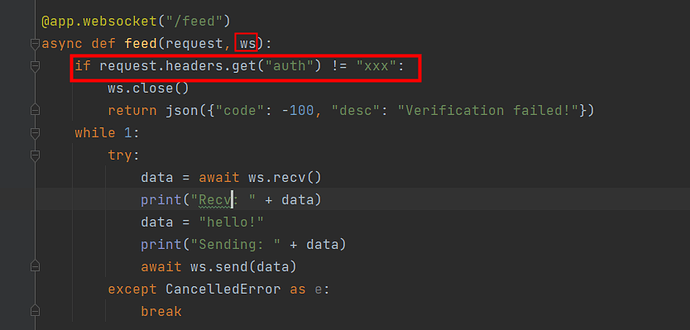hello,I have a question. Can you help me solve it?
Is opening a ws connection without validation a bit of a drain on server resources?
sanic/app.py:
async def _websocket_handler(
self, handler, request, *args, subprotocols=None, **kwargs
):
if self.asgi:
ws = request.transport.get_websocket_connection()
await ws.accept(subprotocols)
else:
protocol = request.transport.get_protocol()
ws = await protocol.websocket_handshake(request, subprotocols)
# schedule the application handler
# its future is kept in self.websocket_tasks in case it
# needs to be cancelled due to the server being stopped
fut = ensure_future(handler(request, ws, *args, **kwargs))
self.websocket_tasks.add(fut)
cancelled = False
try:
await fut
except (CancelledError, ConnectionClosed):
cancelled = True
except Exception as e:
self.error_handler.log(request, e)
finally:
self.websocket_tasks.remove(fut)
if cancelled:
ws.end_connection(1000)
else:
await ws.close()

